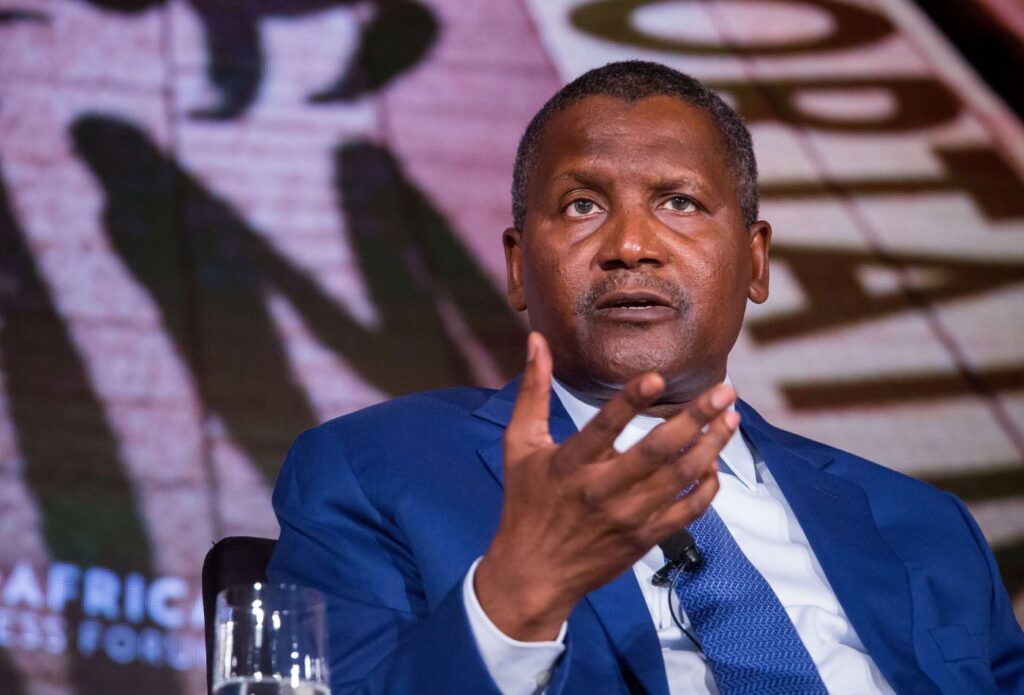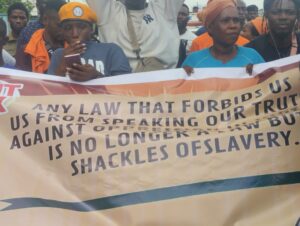The Chairman and Chief Executive Officer of the Dangote Group, Aliko Dangote, on Tuesday said rising interest rate hikes would hurt local manufacturers.
Dangote made the assertion at the opening session of a three-day National Manufacturing Policy Summit organised by the Manufacturers Association of Nigeria at the Banquet Hall of the State House, Abuja.
“Before I delve into my paper, let me start with some key messages.
“Nobody can create jobs with an interest rate of 30 per cent. No growth will happen. No Power, no prosperity. No affordable financing, no growth, no development,” he said.
His comments come weeks after the CBN’s Monetary Policy Committee agreed to increase the Monetary Policy Rate for the third consecutive time from 24.75 per cent to 26.25 per cent.
The Monetary Policy Committee held its 295th meeting on May 20-21, 2024 to review recent economic and financial developments in the country and to assess risks.
After the meeting the apex bank resolved to “Raise the MPR by 150 basis points to 26.25 per cent from 24.75 per cent,” the CBN Governor, Yemi Cardoso, who chairs the MPC announced.
While delivering his address at the manufacturer’s summit on Tuesday, Dangote said no growth is foreseeable under such circumstances.
The business magnate also called on the government to protect existing businesses in the country, especially manufacturers by providing an enabling environment for them to thrive.
According to him, import-dependence equals poverty importation.
Dangote argued that for the government to address the challenges of unemployment, poverty and insecurity, the manufacturing sector must be empowered to function optimally.
“Let me therefore conclude by reiterating that Nigeria has all it takes to develop and sustain a globally competitive manufacturing sector. But to do so, we must re-think our industrialisation policy.
“We must look to leading countries in the West and the East who are actively protecting their domestic industries.
“We must similarly enact policies to protect our domestic industries and nurture them into home grown champions that will create the jobs and prosperity we desperately need,” he said.
Dangote, who noted that through there are various factors contributing to the underperformance of the manufacturing sector, emphasised that the crucial issue requiring attention is government policy and its approach toward investments and investors.
He pointed out that industrial or manufacturing entities are not like trading entities while expressing his belief that the fundamental role and responsibility of government should be not only to promote investments and attract investors in manufacturing but also to ensure that these investments are nurtured and protected to facilitate growth and sustainability.
“In every economic regime, including the most advanced, investment projects in manufacturing and industrial sectors need time and a conducive environment for them to mature, build capacity and scale, to become competitive against those in older and more mature markets.
“But since the Mid 1980’s non-industrialized countries and their leaders have been discouraged from protecting and supporting such investment and forced to expose them to unfair competition from stronger, older competitors in their own internal market, even before the newcomers are commissioned. Yet these same older/bigger players are well supported in their home markets,” he said.








More Stories
Ribadu tells families of kidnapped victims not to pay any ransom
Ozigbo rejects Anambra APC guber primary, calls it a theft
Ndume tackles Tinubu over massive borrowings, lists ‘spurious’ items